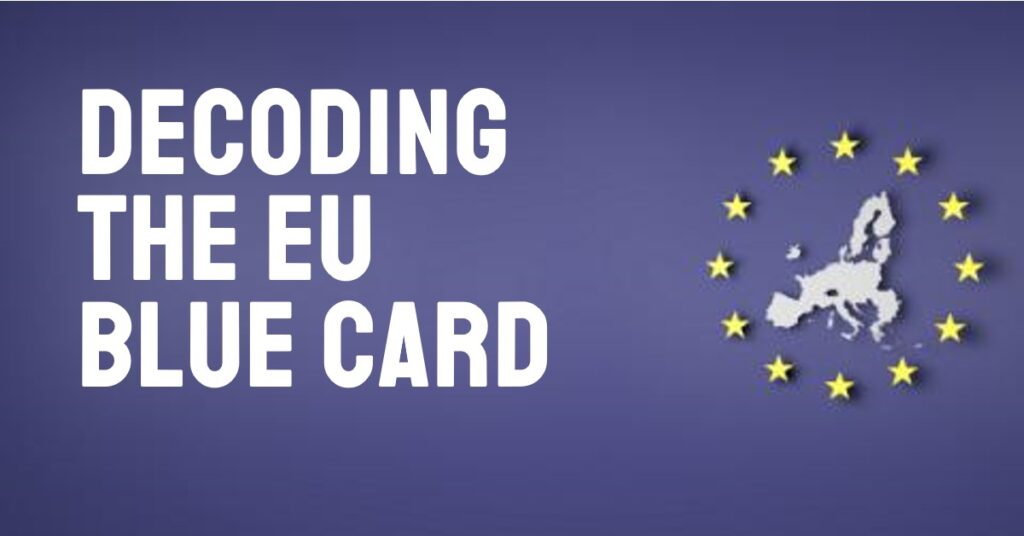
Navigating the Salary Threshold: Is the EU Blue Card Now Within Reach?
The cornerstone of the EU Blue Card’s appeal lies in its promise of streamlined access to Europe’s dynamic job market. However, stringent salary requirements have historically posed a significant barrier. The 2025 updates introduce a welcome shift, with substantial reductions in the minimum annual gross salary thresholds across various EU member states. In Germany, for instance, the standard threshold has been lowered from €56,000 to €48,000. This adjustment alone broadens the pool of eligible candidates.
More significantly, for professionals in high-demand sectors, such as IT and other skilled trades facing labor shortages, the threshold has been further reduced to approximately €44,000. This targeted reduction acknowledges the critical need for specialized talent in these fields. In Sweden, similar adjustments have been made, with the threshold now pegged at around 49,000 Swedish Krona per month. This more flexible approach reflects a broader recognition of the need to attract and retain skilled professionals, fostering economic growth and innovation.
Understanding Contract Flexibility: How Short-Term Assignments Can Lead to Long-Term Opportunities
Another pivotal change in the 2025 EU Blue Card regulations is the increased flexibility regarding contract duration. Previously, a minimum 12-month employment contract was typically required for eligibility. This requirement has now been reduced to six months, opening doors for professionals seeking short-term assignments or project-based work. This flexibility is particularly advantageous for those in dynamic industries where project-based employment is common.
It’s crucial to understand that the validity of your EU Blue Card will generally align with the duration of your employment contract. For instance, a 24-month contract will typically result in a Blue Card with a similar validity period. In Germany, the maximum validity for a Blue Card is four years. Securing an unlimited employment contract will entitle you to this maximum duration, and you can pursue permanent residency after three years of continuous employment. This adjustment provides a more adaptable pathway for professionals considering temporary positions, potentially leading to long-term career opportunities within the EU.
Degree Requirements Reconsidered: Recognizing Experience Alongside Formal Education
One of the most significant and transformative updates to the EU Blue Card program is the relaxation of degree requirements for specific professions. Historically, a recognized university degree was a prerequisite for eligibility. However, the 2025 regulations introduce a more pragmatic approach, acknowledging the value of practical experience alongside formal education.
Specifically, for professions in high-demand sectors such as IT, cyber security, and artificial intelligence, as well as other skilled trades facing labor shortages, professionals with at least three years of relevant experience can now qualify for an EU Blue Card, even without a corresponding degree. This change reflects a recognition of the rapidly evolving nature of these industries, where practical skills and experience often outweigh formal qualifications. For example, a software developer with extensive experience but a degree in an unrelated field can now meet the eligibility criteria.
Mobility and Integration: Navigating the EU’s Diverse Landscape with Ease
Enhanced mobility is a key advantage of the updated EU Blue Card regulations, offering professionals greater freedom to explore career opportunities across the EU. After 12 months of holding a Blue Card in one EU country, you can now move to another EU country and continue working for your original employer, even remotely. This flexibility allows for seamless transitions between member states, fostering cross-border collaboration and innovation.
However, to work for a company based in your new country of residence, you will need to convert your EU Blue Card to that country’s version. For example, if you hold a Dutch EU Blue Card and wish to work for a German employer, you will need to obtain a German EU Blue Card. Germany has also streamlined the process of converting EU Blue Cards from other member states, facilitating smoother integration for international professionals.
Job Mobility Simplified: Embracing Career Growth and Flexibility
The 2025 updates also introduce significant improvements in job mobility for EU Blue Card holders. Previously, changing jobs often required reapplying for a new Blue Card, creating unnecessary bureaucratic hurdles. Now, if you change jobs within the first 12 months of your Blue Card’s validity, you only need to notify the relevant foreign office. After 12 months, you are not even required to provide notification, streamlining the process and reducing administrative burden.
This simplified process is being implemented across various EU member states, including Sweden, where changing jobs no longer necessitates reapplying for a new EU Blue Card. These changes grant Blue Card holders greater job flexibility, encouraging career progression and adaptability within the EU’s dynamic job market.
Conclusion: A New Era for Skilled Professionals in the EU
The 2025 updates to the EU Blue Card represent a significant step towards creating a more welcoming and accessible environment for skilled professionals. By lowering salary thresholds, increasing contract flexibility, recognizing practical experience, and enhancing mobility, the EU is making it easier for global talent to contribute to its thriving economies. These changes reflect a proactive and forward-thinking approach, positioning the EU as a leading destination for skilled professionals worldwide.
For anyone looking to take advantage of these new rules, it is important to understand the details of the specific country you are looking to move to.
ETAINFI can provide personalized support throughout your EU Blue Card application process, answering any questions and helping you to be successful.


